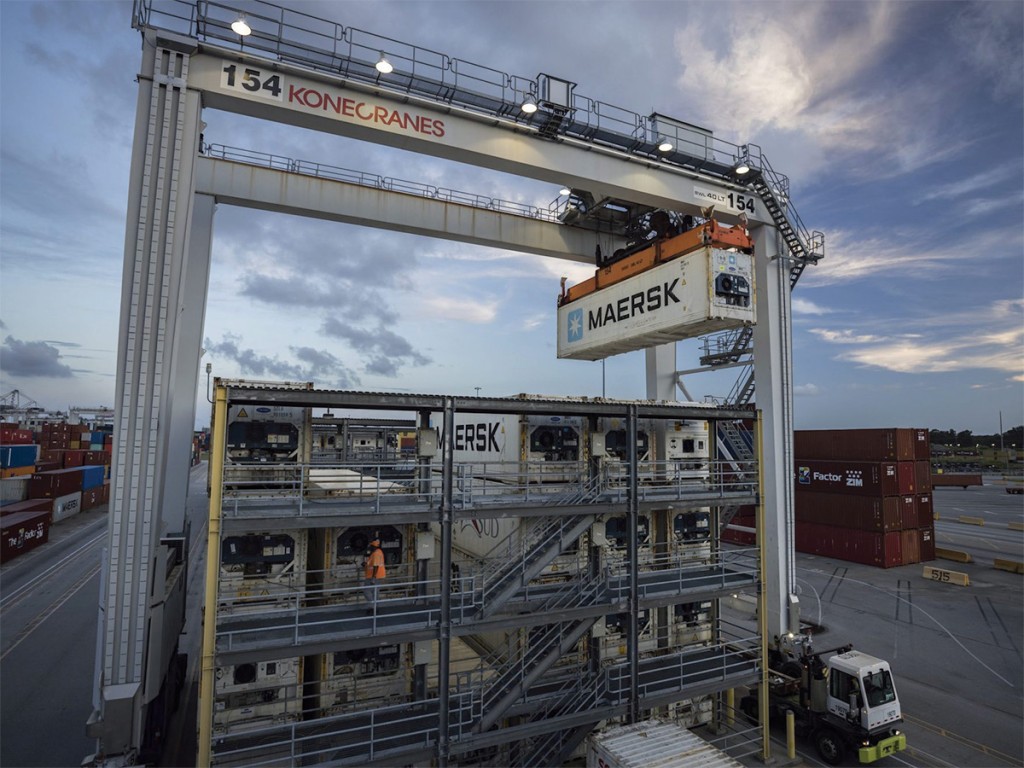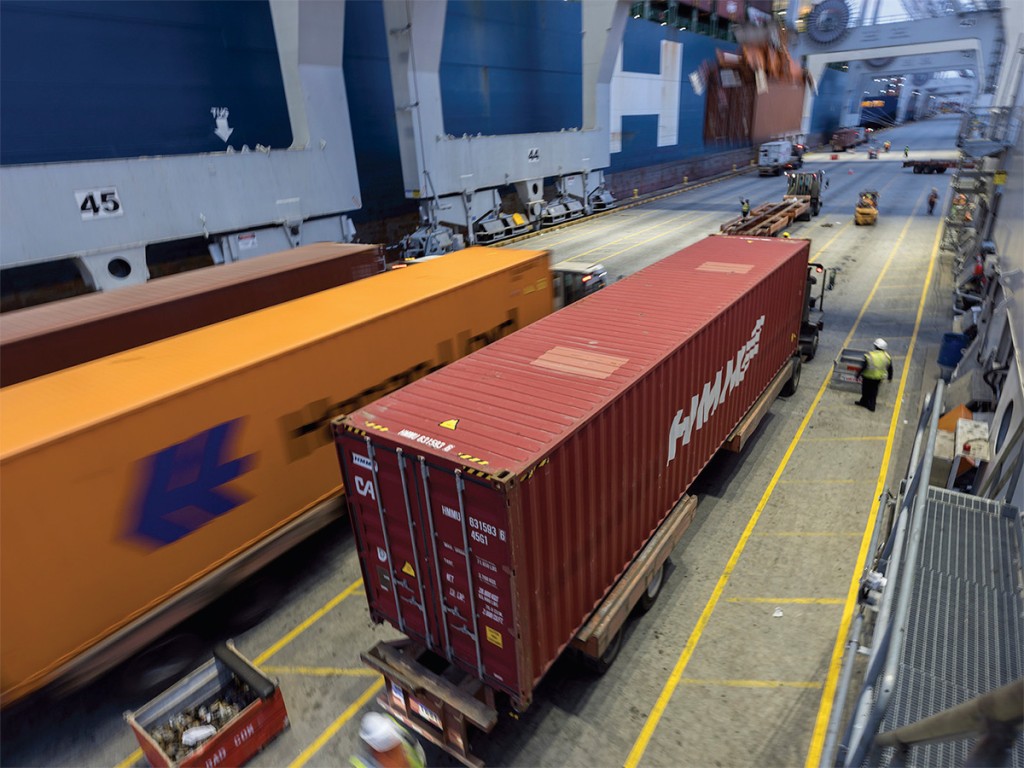Investments in cold-chain facilities bolster booming reefer business.

The Georgia Ports Authority (GPA) is increasing its chilled cargo handling capacity to stay ahead of demand growth, an anticipated increase of about 15,000 TEUs annually in chilled imports. The addition of seven refrigerated container racks at the Garden City Terminal in Savannah, will bring the total in that facility to over 3,500 plugs, while Ocean Terminal provides another 368 refrigerated plugs. The GPA board approved construction of the $6.2 million project at Garden City in January.
“We saw that investments were happening on the warehousing side,” said Lynch. “So, we’re making sure that we have the power and the refrigerated plugs that can support these increases in refrigerated cargo movements.”

Perishables Both Inbound & Outbound
Perishables are a growth industry in Savannah, showing a 3% growth rate in loaded imported refrigerated containers in 2022. In 2020, the port became number one in the nation for the export of containerized agricultural goods, driven by locally sourced commodities such as poultry, peanuts, pecans, and blueberries, and remains in that position, according to Lynch. Top performing chilled imports included grapes, vegetables, fish fillets, potatoes, and candy.
“Exporting proteins, primarily poultry, has always been strong for Georgia,” said Lynch. “Over the last several years we’ve also been really pushing hard to grow our imports.”
One source of temperature-controlled imports to Savannah recently came from a French frozen-dessert company that was expanding into the southeast. “They were going to be selling through e-commerce,” related Sandy Lake, the logistics team director at the Georgia Center of Innovation, “so, they needed a specialized facility that could not only handle cold storage but could also handle fulfillment of orders.
“We were able to connect them with a service provider that could handle their specific needs,” she added. “They were able to do the distribution and the fulfillment as well as the cold storage and handling of the product.”
The growth in cold-storage facilities in the Savannah region is part of a boom in the industrial real estate market in the area. Savannah has 37.8 million square feet of new industrial space under construction or planned, representing an increase of over 75% since 2016. The current vacancy rate in Savannah is under 1%.
“The commercial real-estate industry looks to have somewhere between 5% to 6% vacancy rates to absorb new business,” said Lynch. “Once this new space comes online, we’ll be able to bump that number up a bit.”
There are 22 spec buildings under construction, amounting to 11.6 million square feet, according to Colliers International. Work has started on another 22 spec buildings, which would deliver another 14.5 million square feet. Seven additional spec buildings have also been proposed which would add another 3.5 million square feet to the market should they reach development. Another eight build-to-suit projects are under way, for an additional 8.2 million square feet.
Inventory Storage Shift From West to East
The Savannah market is attracting interest for several reasons, said Chris Tomasulo, senior managing director in JLL’s industrial services group in Atlanta, including “the strength of the GPA, its efficiency and scalability to accommodate future growth, and the overall cost of doing business in Georgia compared to New York and California.”
E-commerce growth is one, but not the only, factor driving Savannah’s growth, according to Lynch. “The model has changed as a result of COVID,” he explained. “Folks may want to position more inventory where they had been shaving a little close.”
Lynch also sees a shift in inventory storage from the West Coast to the East. “Our customers are saying they don’t want to put all their eggs in one basket,” he said. “They want more inventory on the East Coast than they had before.” One GPA customer, said Lynch, was switching from 70/30 West Coast to East Coast ratio to the opposite.
The facility opened at the Port of Savannah by Lineage Logistics, the world’s largest temperature-controlled logistics provider, is designed to “address capacity concerns that have previously impacted the market,” said Jim Henderson, the company’s vice president of business development.
Lineage’s Savannah facility is “completely dedicated to fresh produce,” Henderson added, “and will help cut through port congestion to ensure fewer obstacles in maintaining the freshness of the produce.”
Other private cold-chain logistics companies are also looking to add capacity in Savannah, according to Lynch. “We’re expecting to see some announcements soon,” he said.





